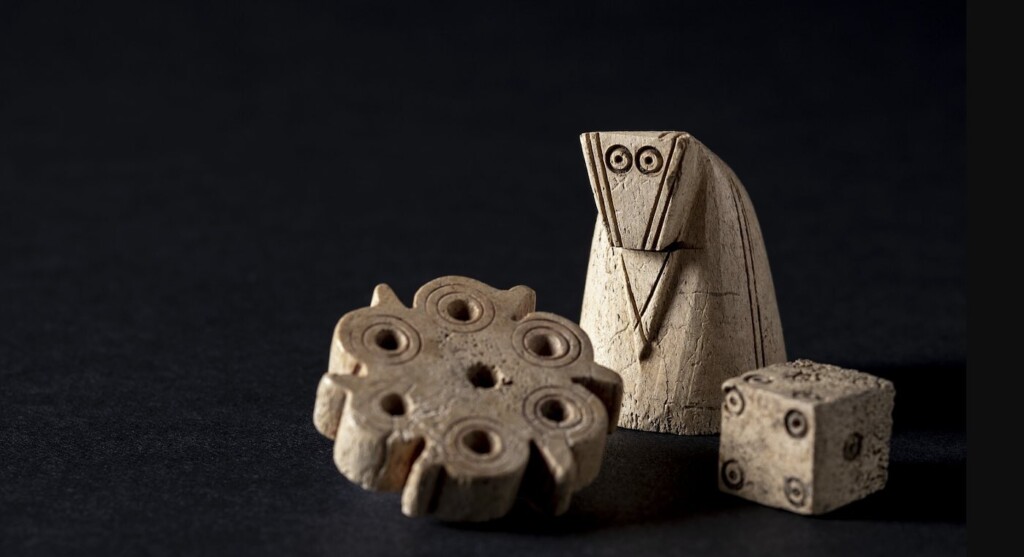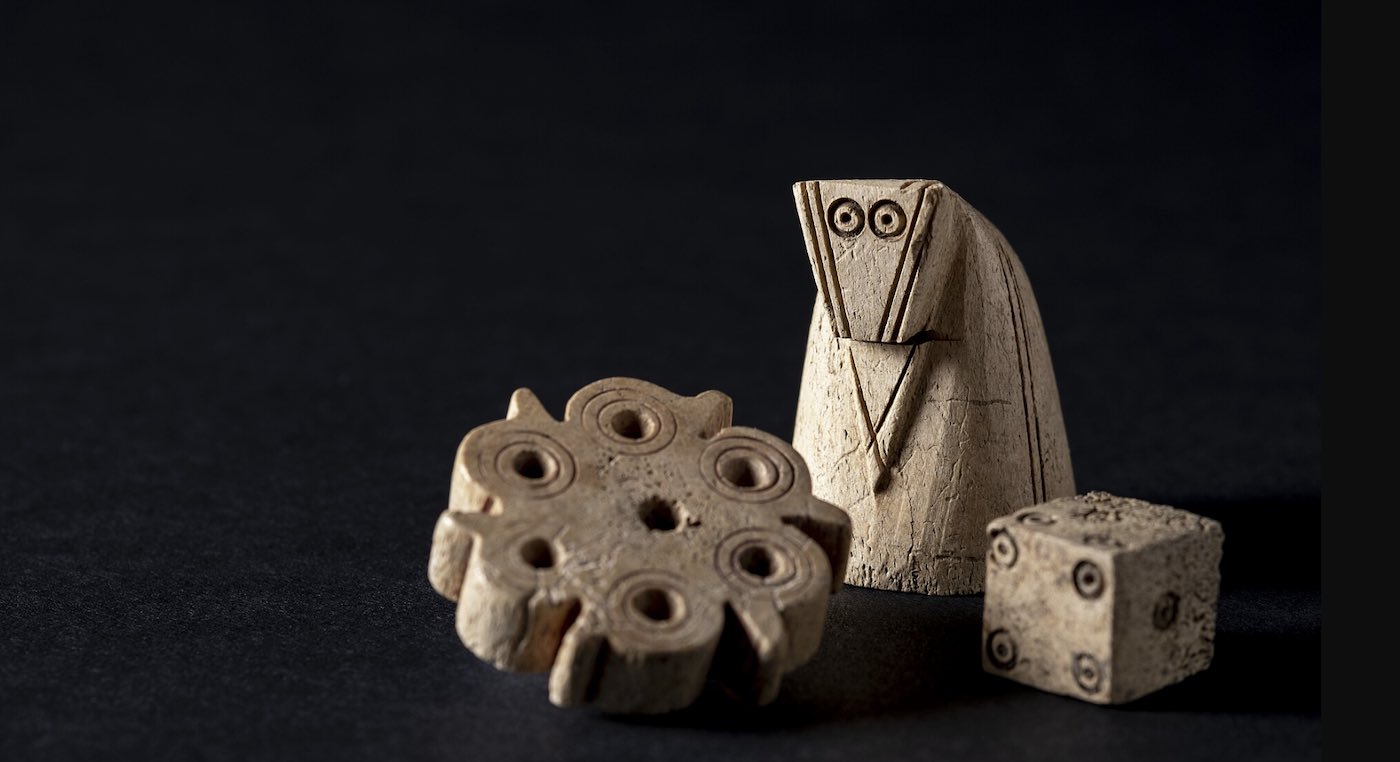
If a history professor or museum is at their very best when they help people deeply connect with the ghosts of the past, then these 1,000-year-old game pieces found in a German castle are the perfect tool for the job.
Consisting of four, flower-shaped gaming pieces, a six-sided die, and a knight chess piece—all carved of antler, the find is a treasure trove of information on pastimes in the Middle Ages.
Exquisitely preserved, the knight piece, undoubtedly the most striking discovery, carries a well-worn sheen on its upper half from fingers picking it up thousands of times to place it along its L-shaped path.
The flower-shaped piece has residues of red paint, suggesting that one side would have played red and the other, presumably, another color.
The pieces were found under a wall segment in the neglected Stahleck Castle in southern Germany’s Baden-Württemberg state, and date to the 11th century.
Experts from the University of Tübingen, the State Office for the Preservation of Monuments Baden-Württemberg (LAD), and the German Archaeological Institute (DAI) collaborated on the excavation.
SIMILAR ARTIFACTS FROM A SIMILAR TIME: Experts Find a 1,000-Year-old Ice Skate Made of Animal Bone in Czech Republic
“In the Middle Ages, chess was one of the seven skills that a good knight should master. It is therefore not surprising that known finds mostly come from castles,” explained Dr. Jonathan Scheschkewitz (LAD).
Arriving during the early Middle Ages in Europe from what was probably Persia, chess became ubiquitous across the continent, and it’s believed the rules haven’t changed much, if at all, since.
TURNING UP THE MIDDLE AGES: 1,000 year old Viking Sword Fished out of an Oxfordshire River with a Magnet
“The discovery of an entire games collection from the 11th/12th century came as a complete surprise to us, and the horse-shaped knight piece is a real highlight,” said Dr. Lukas Werther (DAI).
A Middle Ages exhibition based on the conclusion of the Stahlek excavations and others is set to be held at the Pfullingen Schloss (castle) from June 15th to August 30th, where visitors can see and learn about the game pieces and gaming habits in the Middle Ages.
SHARE This Amazing Discovery With Your Friends Who Love Chess…




















